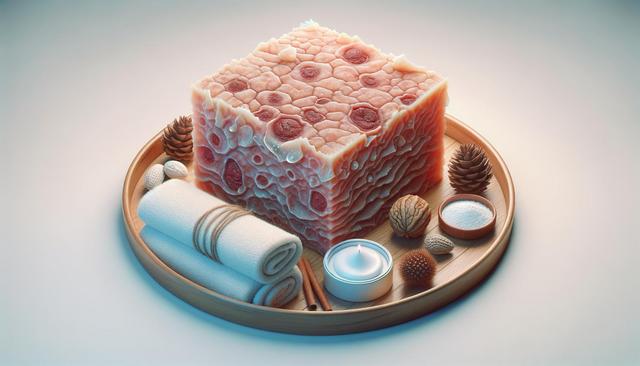What Is Eczema and Why Does It Occur?
Eczema, also known as atopic dermatitis, is a chronic skin condition that affects people of all ages. It typically appears as red, inflamed patches of skin that can be dry, cracked, and extremely itchy. While the exact cause of eczema isn’t fully understood, it’s believed to be a result of a combination of genetic and environmental factors. People with eczema often have a compromised skin barrier, making their skin more sensitive to irritants, allergens, and microbes.
Triggers for eczema flare-ups vary by individual but may include:
- Stress
- Cold or dry weather
- Harsh soaps and detergents
- Allergens such as dust mites or pet dander
- Hormonal changes
Understanding what causes your eczema to flare up is the first step toward managing it effectively. Identifying triggers and avoiding them can significantly reduce the frequency and severity of outbreaks.
What Stops the Itching of Eczema?
One of the most challenging symptoms of eczema is the relentless itch. Scratching can worsen the condition, leading to broken skin and even infection. So, what stops the itching of eczema? The answer lies in a combination of treatments that calm inflammation and restore the skin barrier.
Common methods to relieve itching include:
- Using fragrance-free moisturizers regularly to keep the skin hydrated
- Applying cold compresses to reduce itch and inflammation
- Using over-the-counter anti-itch creams containing ingredients like hydrocortisone or colloidal oatmeal
- Wearing soft, breathable fabrics to reduce skin irritation
In some cases, healthcare providers may recommend prescription treatments such as corticosteroid creams or antihistamines for more severe symptoms. While these can help manage itching effectively, they should be used under medical supervision to avoid potential side effects.
Immediate Relief for Eczema Itch
When a flare-up strikes, finding immediate relief for eczema itch becomes a top priority. Thankfully, there are several strategies that can provide fast comfort and minimize the urge to scratch. Quick interventions can prevent the situation from worsening and help soothe irritated skin.
Here are a few practical steps you can take for quick relief:
- Take a lukewarm bath with baking soda or oatmeal to calm the skin
- Apply a thick layer of an emollient cream or ointment immediately after bathing
- Use wet wrap therapy, where damp bandages are wrapped around the affected area to lock in moisture and reduce inflammation
- Keep nails trimmed short to prevent damage from scratching
These methods can offer short-term relief but should be paired with a long-term management plan to minimize future flare-ups. Keeping a symptom diary may help identify patterns and triggers that contribute to outbreaks.
How to Make Eczema Go Away Fast
While eczema is a chronic condition, there are ways to reduce the duration and severity of flare-ups. The key to how to make eczema go away fast lies in early intervention and consistent skincare. Acting quickly when symptoms begin to appear can help prevent a full-blown flare-up.
Effective steps include:
- Applying anti-inflammatory creams at the first sign of redness or itching
- Moisturizing frequently throughout the day, especially after washing
- Avoiding known triggers like certain foods, fabrics, or environmental allergens
- Staying hydrated and maintaining a balanced diet
In some cases, phototherapy or immunomodulating treatments may be recommended by a healthcare provider. These therapies target the immune response that contributes to eczema symptoms. Although these methods can help reduce symptoms quickly, they are usually part of a broader treatment approach.
How to Get Rid of Eczema Forever: Is It Possible?
Many people wonder how to get rid of eczema forever. While there is currently no known cure for eczema, long-term remission is possible with proper care and management. The goal is to control symptoms, prevent flare-ups, and improve quality of life over time.
Here are some strategies that can support long-term skin health:
- Establish a daily skincare routine with gentle, fragrance-free products
- Manage stress through techniques like meditation, exercise, or therapy
- Work with a dermatologist or allergist to identify and manage triggers
- Consider dietary adjustments, especially if food sensitivities are suspected
Ongoing medical research continues to explore new treatments and possible cures. Advances in biologic therapies and personalized medicine offer hope for more effective long-term solutions. Until then, consistent care and lifestyle adjustments remain the most effective way to keep eczema under control.
Conclusion: Managing Eczema with Confidence
Living with eczema can be challenging, but understanding the condition and using the right strategies can make a significant difference. Whether you’re looking for immediate relief for eczema itch, wondering what stops the itching of eczema, or exploring how to make eczema go away fast, the key lies in consistent care and awareness. While the question of how to get rid of eczema forever remains complex, ongoing management and professional guidance can help you live more comfortably and confidently.




Leave a Reply